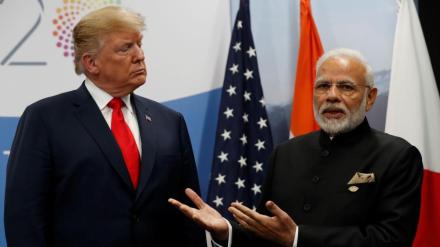Prime Minister Narendra Modi has rejected multiple calls from US President Donald Trump amid an escalating rift between the two countries. The revelation came even as Washington doubled down on plans to impose harsh secondary tariffs against imports from India — pushing the overall levy to a whopping 50%. New Delhi has pushed back vehemently against the “unfair, unjustified, and unreasonable” decision and repeatedly indicated plans to maintain its ties with Moscow.
New Delhi had turned to purchasing Russian oil sold at a discount after Western countries imposed sanctions on Moscow and shunned its supplies over its invasion of Ukraine in February 2022. The US has blamed repeatedly claimed in recent days that this was funding Moscow’s war in Ukraine — a charge strongly rejected by India. Multiple people including Foreign Minister S Jaishankar and former US envoy Eric Garcetti have also noted that India had been encouraged by the US to “stabilise the world energy market” by buying Russian oil until recently.
‘Trump calls but Modi doesn’t answer him’
According to German newspaper Frankfurter Allgemeine the Indian leader had rebuffed the advances of his American counterpart at least four times over the past few weeks. The report noted that the most trade conflicts initiated by Donald Trump in 2025 followed a pattern — starting with multiple expressions of discontent over high deficits and then high tariff threats. It was at this point that negotiations typically began with each country and its ‘intimidated’ government officials. The report went on to add that Trump would often grant a reprieve before the tariffs could be imposed. In other cases high tariffs were announced before being lowered through subsequent negotiations.
“So far, the US president has defeated all opponents in the tariff dispute. Not India. Instead, the country is turning back to China and ignoring old wounds,” the article began.
The report did not specify the exact dates in which the calls were allegedly made.
50% tariffs from Wednesday
Indian exporters are bracing for a sharp decline in US orders after Washington confirmed steep new tariffs on the South Asian nation’s goods take effect from Wednesday, escalating tension between the strategic partners.
“The government has no hope for any immediate relief or delay in U.S. tariffs,” said a commerce ministry official
Exporters hit by tariffs would receive financial assistance and be encouraged to diversify to alternative markets such as China, Latin America and the Middle East, the official added.
(with inputs from agencies)
